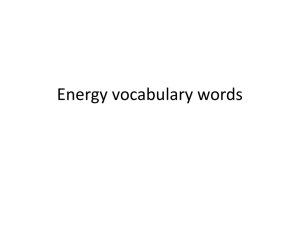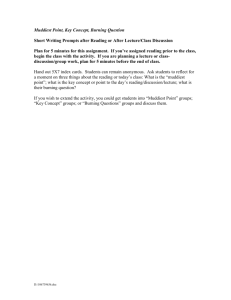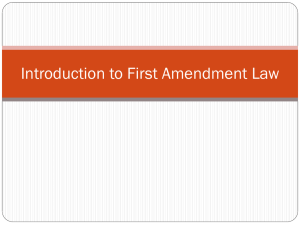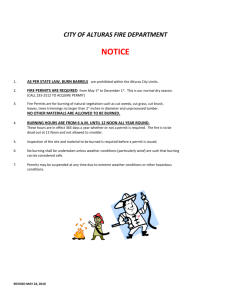Third Sunday of Easter April 6, 2008 J.A. Loftus, S.J.
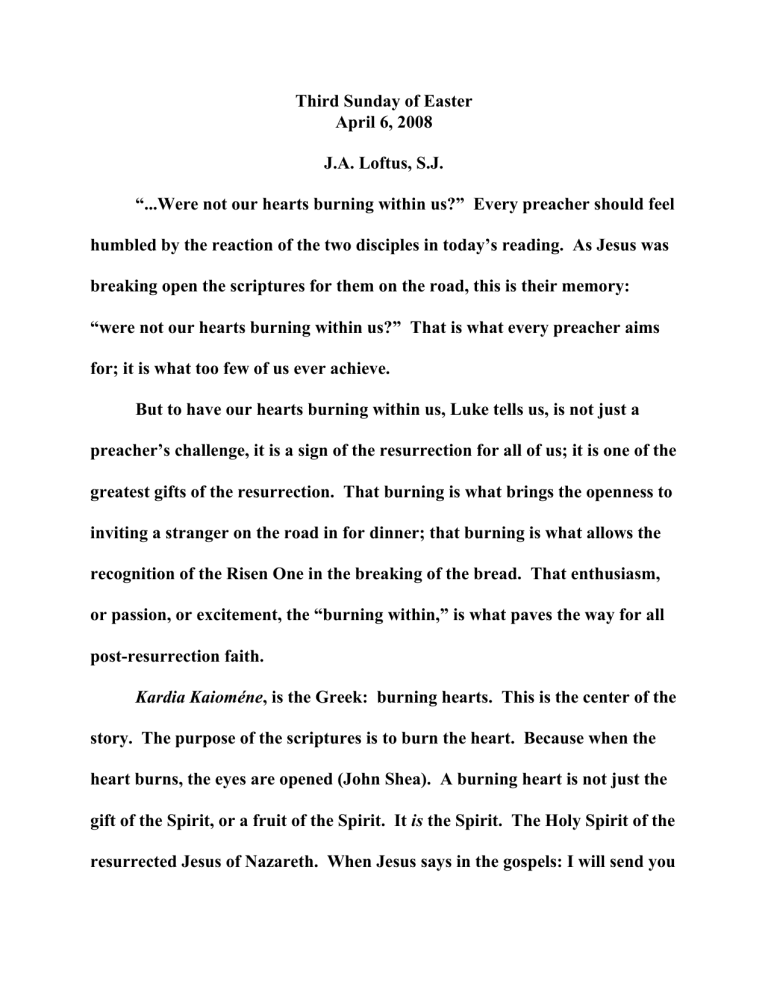
Third Sunday of Easter
April 6, 2008
J.A. Loftus, S.J.
“...Were not our hearts burning within us?” Every preacher should feel humbled by the reaction of the two disciples in today’s reading. As Jesus was breaking open the scriptures for them on the road, this is their memory:
“were not our hearts burning within us?” That is what every preacher aims for; it is what too few of us ever achieve.
But to have our hearts burning within us, Luke tells us, is not just a preacher’s challenge, it is a sign of the resurrection for all of us; it is one of the greatest gifts of the resurrection. That burning is what brings the openness to inviting a stranger on the road in for dinner; that burning is what allows the recognition of the Risen One in the breaking of the bread. That enthusiasm, or passion, or excitement, the “burning within,” is what paves the way for all post-resurrection faith.
Kardia Kaioméne, is the Greek: burning hearts. This is the center of the story. The purpose of the scriptures is to burn the heart. Because when the heart burns, the eyes are opened (John Shea). A burning heart is not just the gift of the Spirit, or a fruit of the Spirit. It is the Spirit. The Holy Spirit of the resurrected Jesus of Nazareth. When Jesus says in the gospels: I will send you
an Advocate, a Spirit to remain with you always, this is it. A burning heart that literally transforms us! That burning is what we call the third person of the Blessed Trinity! It is no accident that when the Holy Spirit appears in the gospels, she comes to life as a tongue of fire, that ignites a whirlwind, and inflames the face of the earth. I repeat: this burning is the Holy Spirit of God.
( And I am indebted once again to Sebastian Moore.) It is precisely in breaking the scriptures open and in breaking the bread for each other, that
God abides in the two travelers and turns them back from Emmaus onto the road back to Jerusalem. And surely you can see that this is exactly what we do with each other every Sunday in this church.
So I ask myself: where is the burning? Where is my heart inflamed with enthusiasm and burning with God’s Spirit? Why don’t I feel burned in my heart on all our Sundays together? Why does it sometimes seem like such work to feel enthused? Luke’s story may help here too.
Before the two disciples are set on fire, they resemble some of us even more regularly in our day-to-day lives (or at least in my daily life): they are sad and depressed, flat and disappointed, exhausted by just trying to believe the unbelievable. (Now this I can relate to.) Resurrection never seems to come easily for some of us. The original disciples on that road are, for most of
2
the story, Luke tells us, skuthrópos. They are downcast, sad, sullen, gloomy, dark. Any of those words will do. They are disappointed, period. The fire is out! This is not what they had expected. Can you relate to that?
Fr. Joseph Fitzmeyer once commented that the saddest verb in all the New Testament was in today’s gospel. It is also one of the rarest uses of the pluperfect tense in the scriptures. [Added Comment: it is actually the rare use of the imperfect indicative active form of the verb. Thank you Latin scholars out there in the pews. Only at St. Ignatius!] The verb, in Latin, is
Spero. I hope. (In Greek, elpizo.) The disciples, ambling along so dejected and down, say to Jesus (in the Latin): Sperabamus. (Or in Greek, elpízomen.)
“We had been hoping,” in English translation. But now....
All the dreams, hopes, aspirations, passion of the disciples’ short life with Jesus came crashing down. They felt they might have been better off if they had never met him in the first place. It is a sad verb. We had been hoping...for so much. And now it all seemed so pointless. So unexpected.
I know I cannot speak for any of you, but I know that I can relate– unfortunately quite easily–to their sadness and flatness. And I know I am not alone. Many of us had been hoping for so much more. From life itself; from the loves of our life; from faith; from God. We think we had been promised
3
so much more. It should be easier. And yet often the experience remains strangely flat and can seem sometimes so empty–at least on some days.
Some of you may remember a line I quoted from Gerard Manley
Hopkins several months ago in a homily about how hard it is sometimes to recognize God or Jesus. Hopkins says: “I greet Him on the days I meet Him, and bless when I understand.” Those days, when I meet him and greet him, come too far and few between–for many of us.
Those disciples on the road to Emmaus learn just how rare it could be, and how hard it could be, to be able to recognize Him. Many of the great saints and mystics throughout history also knew how rare and how hard it could be to recognize Him.
God, it seems, does come and go! Like in today’s gospel. The minute
Jesus is recognized, poof! He’s gone. Vanished. Disappeared, other translations say. Forgive all the Greek today, but the word Luke explicitly chooses for vanished is aphantos. Sounds almost like our word phantom, the ghost. The best translation is probably: Poof! There goes God again!
But what remains is the memory, another very special Greek word says it as well, the anamnesis, the remembrance that we call Eucharist. The living and alive memory of one who breaks the scriptures and breaks the bread. For
4
us and with us. And the burning remains; that is God with us.
What seems to remain constant from Emmaus to today is the constant human choice to remain open to the possibility of being terribly surprised– and being burned. Only you and I can make sure our heart is capable of burning at all. To become enthused, literally en-theos, in-God, requires a choice on my part. All disciples have to remain open to the possibility of being cradled by a passionate and enthusiastic love for life, for a burning fire. You can’t really choose to be jaded and see God.
So....we have our own part to do if we, too, want to recognize Him on our roads from Jerusalem to Emmaus and back again. Let me paraphrase a favorite line from Teilhard de Chardin: Having harnessed the energies of the tides, the moon, the stars, we will one day harness for God the energies of love.
And on that day, for the second time in human history, we will have discovered fire. “...Were not our hearts burning within us....” Peace!
5

